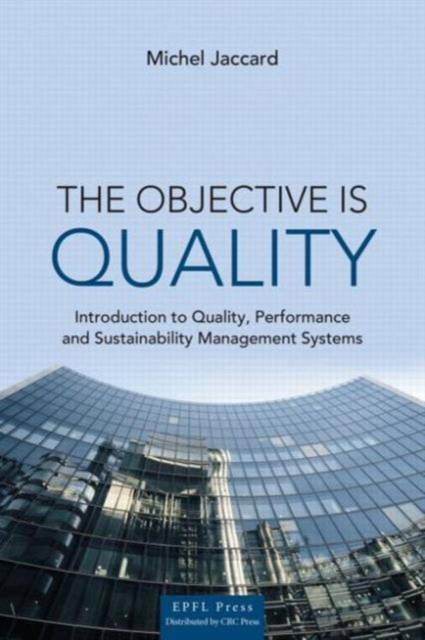
- Retrait gratuit dans votre magasin Club
- 7.000.000 titres dans notre catalogue
- Payer en toute sécurité
- Toujours un magasin près de chez vous
- Retrait gratuit dans votre magasin Club
- 7.000.0000 titres dans notre catalogue
- Payer en toute sécurité
- Toujours un magasin près de chez vous
The Objective Is Quality
An Introduction to Quality, Performance and Sustainability Management Systems
Michel JaccardDescription
Quality is a form of management that is composed of the double approach of driving an organization towards excellence, while conforming to established standards and laws. The objective of quality confers advantages to companies: it makes them more resilient to change that can be unexpected or even chaotic; it makes them more competitive by identifying those steps in processes that do not offer added value.
No longer the concern of a small community of experts, even scientists and engineers working in the private sector will find that they will have to con- front questions related to quality management in their day-to-day professional lives. This volume offers such people an unique entry into the universe of quality management, providing not only a cartography of quality standards and their modes of application - with particular attention to the ISO standards - but also a broader cultural context, with chapters on the history, prizes, deontology and moral implications of systems of quality management. This book thus opens the door to all those eager to take the first steps to learning how the principles of quality are organized today, and how they can be applied to his or her own activity.
Spécifications
Parties prenantes
- Auteur(s) :
- Editeur:
Contenu
- Nombre de pages :
- 447
- Langue:
- Anglais
Caractéristiques
- EAN:
- 9781466572997
- Date de parution :
- 23-04-13
- Format:
- Livre relié
- Format numérique:
- Genaaid
- Dimensions :
- 168 mm x 246 mm
- Poids :
- 907 g

Les avis
Nous publions uniquement les avis qui respectent les conditions requises. Consultez nos conditions pour les avis.






